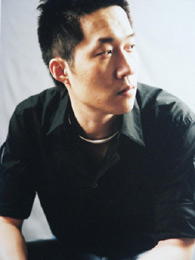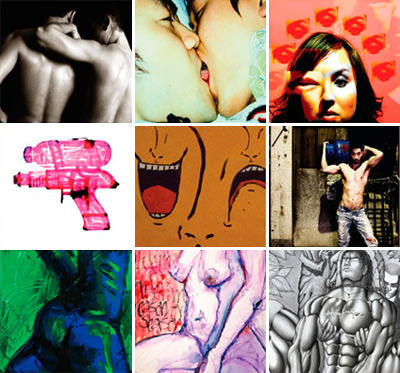A decade is a long time in the relentless and seemingly never-ending struggle for gay rights. Frustration, fatigue, distress and burn out are all too common amongst both LGBT organisations and the volunteers that run them. Why should this be? Hong Kong is an open society with a free press enjoying the liberties enshrined within the Common Law and its own Basic Law. You can register almost any kind of society here, and, if you want to, take it onto the streets to protest. All the mechanisms of a functioning democracy are in place. What these mechanisms are not connected to, of course, is power; the cogs whir but fail to drive the machinery, and activist effort can often feel like wading through treacle. Huge effort is needed to make just tiny advances. Add to that the still conservative nature of Hong Kong’s society, which keeps most tongzhi firmly behind their closet doors and so away from the volunteer organisations that need the help of large numbers to function and be financially viable. No money means no full time workers, so the load falls onto the shoulders of the volunteer few. After years of struggle, many activists retire bruised and frustrated, often, too, sadly unnoticed and un-thanked. It’s no wonder that when you look around at the brave few who are leading LGBT groups in Hong Kong today, you will find few who have survived through the long term.

One of those who have is Reggie Ho, who currently heads HORIZONS, which runs Hong Kong’s gay helpline. We met over drinks on the roof of the Fringe Club in Central and Reggie told me about his life and work for the tongzhi community. First, though, I ask him to tell me about HORIZONS, which is not widely-enough known in the English-speaking community.
“It’s one of the oldest LGBT organisations in Hong Kong”, he replies, “founded in February 1992 – in the days following the successful fight for the decriminalisation of homosexuality – by four gay Hong Kong men and a Brit named Barrie Brandon, who’d worked on the London Gay Switchboard. They saw there was a need for a similar hotline in Hong Kong and set one up. Barrie left in 1993, and HORIZONS gradually took on the local Hong Kong flavour it still has today. Its original English-speaking counsellors were replaced over the years with Chinese and it runs totally in Cantonese at the moment, though we’re now seeking to add back an English element.”
At the start, HORIZONS took calls at the homes of volunteers, but with careful budgeting a very small office was opened, financed by social events and most recently by the generosity of a landlord, and they’ve run the hotlines as a free service from there ever since.
In the nineties, in the days before the internet changed gay men’s lives and when the commercial gay scene was a lot smaller than it is now, there was a need in Hong Kong’s tongzhi community for a lot more than hotline support.
“We ran support groups for tongzhi and also for their parents for about six years from the middle ‘90s”, adds Reggie, “and we had other groups for coming out and couples counselling and social groups for things like hiking, movies and music. For about five years we ran a tea dance at Club 97 in Lan Kwai Fong, and when it was at its most popular this attracted up to 150 gay men. Now, these additional activities aren’t needed so much and we’ve concentrated on our core issue, the hotline.”
HORIZONS is not an organisation that aims at political activism, though it participates in the activities of the rest of the community and is always a source of public comment; Legco panels usually see HORIZONS representatives before them when they are considering issues relevant to the tongzhi community. Almost lost in the mists of history, though, are the two mini-pride parades that HORIZONS tried to launch, one back at the start of its life, which failed to get off the ground, and the second, more successful, which marched for a few hundred yards through Lan Kwai Fong in 2005, the first in Hong Kong’s history.
Reggie explains that HORIZONS has a very professional approach to its work. To man its three lines (a minimum of two are open between 7.30 and 10.30 pm on Tuesdays and Thursdays), as well as to carry out the activities needed to back them up, they have a staff of about twenty. The seniors of these act as Coordinators of the hotline service, public relations, newsletter and support services. HORIZONS is always seeking volunteers, and gets them, at a rate of dozens a month (and not all of them are LGBT), but very few last through the strict screening process, the ten or so formal lessons and examination required before anyone is allowed to answer a call, and the three months of probational work that volunteers must undergo before being made a voting member of the HORIZONS team (the structure is very democratic) or being allowed to field calls unsupervised.
I ask Reggie how busy the lines get. “We receive about three to five calls over the three hour shift”, he replies, “and each can last up to about half an hour. Our volunteers keep a professional distance and everything is anonymous. We have no call displays and don’t ask for personal details, so we don’t call back or arrange follow ups. We do, though, encourage callers to call again if we feel they need to. No one except for our volunteers is allowed to visit our office, which is off limits to all except our staff.” This means that for its other activities HORIZONS has to be helped out by other organisations, for instance the Boys’ and Girls’ Clubs Association of Hong Kong, with which they have long had close relations.
“People find out about us on the net and we’re listed in magazines like Dim Sum,” Reggie adds. “We’re very well known by now” (HORIZONS contact details are at the end of this article).

Images from Sexpression, a charity art auction organised by
HORIZONS last year.
HORIZONS is funded totally by donations and has no Government support (though the Government has supported some of their projects occasionally). Its budget is small (its very generous landlord takes only HK$2,500 in rent for their small space), but they have a continuous need for funding. Reggie is often on the road soliciting donations. He speaks publicly on LGBT issues, often to the more liberally minded commercial organisations, and is one of the better known tongzhi faces in Hong Kong.
“I am not an activist”, he habitually states, but that is rather a modest claim and he is certainly one of the most exposed advocates the community possesses.
I asked how he got into the business of ‘not being’ an activist. “I was born in Hong Kong,” he tells me, “but for my university years I studied graphic design at Marist College at Poughkeepsie in New York State. I worked for a while as a graphic designer in New York City, and it was there I did my first community work as a canvasser. When I got back to Hong Kong after a year of this, I soon moved into the TV business, working in the infotainment production side of ATV. This was a really open environment and no one cared about anyone else’s sexual orientation. I came out at work there because people asked me about myself.” After a while at ATV, Reggie decided that the printed word was the medium he preferred and moved to a job with the Hong Kong Magazine, where, after the handover to China in 1997, he developed columns on shopping, food and fashion.
“I had found my calling at last”, he laughs, “I love journalism and especially lifestyle writing. I moved over to the South China Morning Post in 2005 and that made me serious about the profession. I was surprised there, too, that sexuality didn’t make any difference to anyone and I had two and a half good years writing special reports for the supplement. I was also given space to write op-ed pieces for the centre pages on subjects I had a personal passion about. I’ve recently moved to work now for an airline magazine where I can continue travelling and writing lifestyle pieces.”
It was back in 1998 that Reggie joined HORIZONS as a volunteer, and he quickly became Coordinator of some of their groups. After about four years of this he was elected Honorary Chairman, and retains this post today. This brought him into the work of the first Tongzhi Community Joint Meeting (TCJM), the body which brought together the wide spectrum of Hong Kong’s LGBT groups for several years up until about 2006. This went into abeyance but was given new life in 2008 when Reggie stimulated many of the original members and some new ones to resurrect it. The TCJM is now well established and beginning to make a difference to Hong Kong’s LGBT community; Reggie is Chairman of this too. At much the same time that the TCJM reformed, he separately set up the Tongzhi Literary Group, which fosters Hong Kong LGBT writers and writing and meets every three months to hear local authors in both Cantonese and English. Reggie remains Joint Coordinator of this and usually ends up providing translations at the Group’s session as well.
Small wonder, then, that he is often a bit pressed for time! He’s not showing signs of flagging, though, despite the pressure and the frustrations. “We’ve not yet achieved what we’ve set out to do”, he says. “We want to see a world where sexual orientation isn’t a factor in how people fulfil their potential. This isn’t just a matter of legislation, but also of education and changing social attitudes. Will Hong Kong achieve this fast? Maybe not!” He’s probably right, but it will not be for a want of his effort and commitment.
HORIZONS: www.horizons.org.hk
Hotline: (852) 2815 9268
Address: G.P.O. Box 98573, Tsim Sha Tsui, Hong Kong
